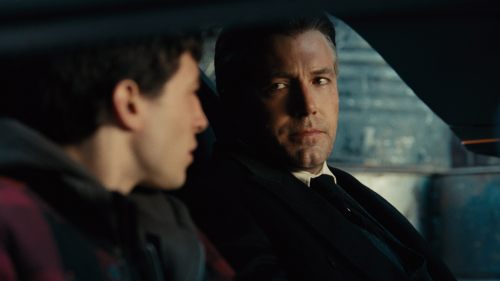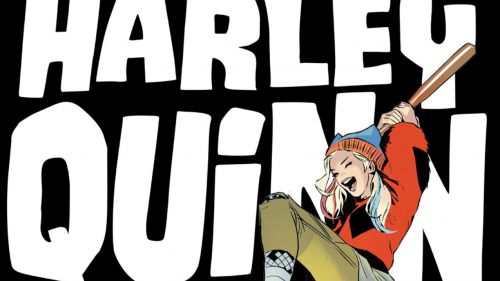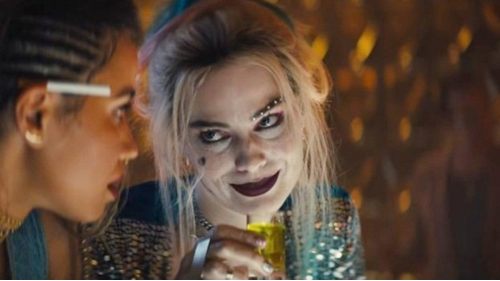GOTHAM CITY SIRENS Could (And Should) Be An LGBTQ Landmark
We’re at a strange crossroads when it comes to queer representation in mainstream media. The genre landscape on TV is littered with gay, lesbian and bisexual characters (with transgender stories slowly catching up), and while you might still struggle to find more than one or two LGBTQ characters per superhero/sci-fi/fantasy show, the small-screen is still streets ahead of its cinematic counterpart. How many big studio films this year featured openly gay characters? Two? Three at best? How many of those even registered with mainstream audiences? That said, the announcement of DC’s Gotham City Sirens, a film led by Poison Ivy, Catwoman and Margot Robbie’s Harley Quinn presents a unique opportunity to leap forward, should the studio choose to take it. The short version? Ivy, Harley and Selina are all canonically queer in the comics, so the movie should follow suit.
There’s… no real longer version to that sentiment, and not making these characters explicitly queer would essentially be a “straightwash” at this point in time, but it’s worth exploring why this may or may not happen, and the various approaches (and non-approaches!) studios and filmmakers might take. Ivy and Harley had been read as a queer couple for years before it was made official, first through “word of God” a la Albus Dumbledore (according to DC Comics’ Twitter account, via the Harley Quinn creative team of Amanda Conner and Jimmy Palmiotti, who have Harley and Ivy living together), then in the actual pages of DC Comics Bombshells written by Marguerite Bennett.
The reason I bring up Bennett specifically is a recent Twitter thread of hers where she talks about intent on behalf of storytellers with regards to setting up queer romances, and big companies shutting them down before these stories come to fruition. There is often a friction between what direction storytellers want to move in and where the companies hiring them want them to go. This isn’t limited to representation of course, but it feels especially insidious when it is – perhaps even more so when the creators in question are queer themselves. It was almost a full year between DC’s tweet about Harley & Ivy and the characters actually kissing in the comics (there was plenty to indicate they were romantically involved up until that point, but it’s not hard to find people strongly in denial), and while Catwoman has also been presumed to be bisexual, it wasn’t until Catwoman #39 in February 2015 that it was made explicit.
I don’t doubt that creators in either case had been pushing for the same beforehand. Why does it need to be explicit? Because “leaving it up to interpretation” is another way of making queer people invisible in media, especially when heterosexuality until otherwise specified is often an assumed default. It would be like having a dozen superheroes all clad head to toe, with ten of them being unmasked and revealed as the next in an unending queue of white characters, and being told the ethnicities of the last two could be “whatever you wanted them to be.” That’s not how visible representation works when many people struggle to see themselves reflected in mainstream media, and when the people that do see themselves don’t see anyone else.
The downside to having Harley, Ivy and Catwoman be queer in Gotham City Sirens is, of course, a straight male gaze. I don’t wish to presume David Ayer would be entirely incapable of presenting queer woman as empowered (my benefit of doubt stretches oceans, so just give me that for now), but there’s always the possibility that they could be viewed from an incredibly leering perspective, like lesbian porn made for men, i.e. most lesbian porn. That isn’t to say they shouldn’t be queer for this specific reason, mind you. Perfect is the enemy of good when it comes to this sort of progress, and I would hope that this sort of justification wouldn’t stop the filmmakers from a set of potentially history-making decisions regardless of the quality of the outcome. We haven’t had a single queer superhero in a studio film (or any queer character in a mainstream superhero film, for that matter), and this could open the door for a lot of kids being able to see themselves on screen for the first time.
If I’m being realistic however, this may not happen, and it would be a shame if it doesn't. The biggest reason major studios don’t go all-in on representation is entirely financial, and “testing the waters” with the odd minor or supporting character before having one, two or even three queer leads is, unfortunately, risk aversion in a business sense. That sucks! A lot! And in a climate that’s both post-Pulse and post-Trump/Pence and their mostly anti-LGBT cabinet, it’s an especially terrible status quo.
So why bring all this up then, if it’s probably not going to happen? For one thing, the best and worst possible scenarios both bear considering, but more pertinent is the fact that unlike most other calls for LGBT representation in mainstream cinema (Marvel, Star Wars, or what have you), the outright refusal to represent queer people in this case wouldn’t just be erasure by proxy, but actual erasure, because in the current comicbook landscape, these characters are three of the premiere pillars of queer representation.
As far as diversity goes, DC comics is known for doing a pretty good job with gay, lesbian and bisexual characters. The three ladies in question, in addition to Batwoman, Renee Montoya, Apollo and Midnighter, make up a significant part of the company’s A and B rosters, with Wonder Woman’s official coming out not far behind. That’s another direction these movie could and should go in, making Diana’s Themysciran history explicit. The recent Wonder Woman: Earth One already does this, and Wonder Woman: Rebirth writer Greg Rucka has the right idea when it comes to bringing that history into the main continuity (Rucka’s writing for Batwoman and Montoya was a huge step for representation during the last decade).
Am I asking too much of macho-action director David Ayer? Would Warner Bros. allow him to go in this direction even if he wanted to? Is it Warner Bros. who needs to push for that step? Is it Margot Robbie? I don’t know the answers to all that, but I do know that this sort of explicit erasure, should it come to pass, isn’t something to take lightly. It’s as outrageous as whitewashing in this case, because it would strip away parts of these characters that have been important to fans for quite some time (both queer and otherwise), and parts that are currently more crystal clear than they’ve ever been. Plus, it’ll be great to see Harley find her way to a supportive partner after her abusive romance with The Joker, but that’s a whole other horribly mismanaged can of worms.
Queer representation matters in media. This story about a young teen finding Supergirl (and it potentially saving her life) is just one of many, and I would hope the people making Gotham City Sirens recognize the power they wield. I’m as sick of writing these editorials as you are of reading them, so let’s promise to do two things to speed this along, yeah? One, raise your voice about this, on social media and elsewhere. Two, pay to support LGBTQ movies, comics, TV shows and creators regardless of how mainstream they are, because that kind of financial message is often heard loudest.



